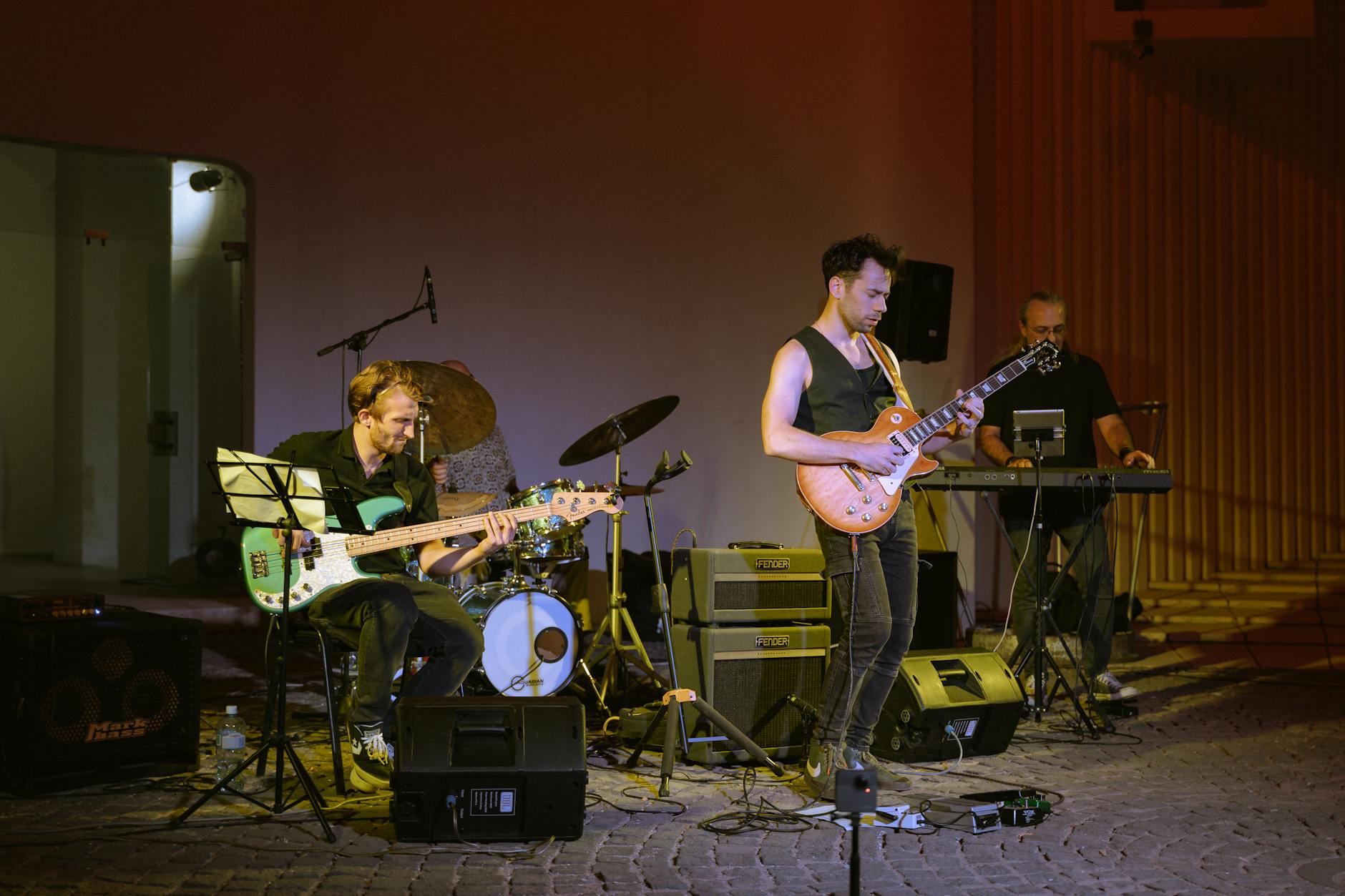Table of Contents
Bass guitar ensembles are making waves in the music world, poised to become the next hot trend in contemporary music. As musicians and enthusiasts explore new sonic landscapes, these groups offer a unique blend of depth and rhythm that captivates audiences. In this blog post, we will examine the burgeoning bass guitar trend and uncover why it may just be the future of ensemble performance.
To really grasp the essence of a bass guitar ensemble, it’s essential to recognize that they consist of multiple bass players coming together to create a rich, layered sound. This unique setup enhances the instrument’s natural grooves and harmonics, allowing bassists to explore everything from traditional jazz and blues to innovative contemporary compositions. Each player contributes their distinctive style, resulting in a dynamic auditory experience that is both intriguing and refreshing. The beauty lies in how these groups blend technical skill with artistic expression, leading to a vibrant reinterpretation of music that is sure to delight any listener.
Bass guitar ensembles are not entirely new but rather one that has gained renewed interest over recent years. Historically, bass guitars have played a critical role in various genres, typically serving as the backbone to help drive a piece of music forward. However, there’s a rich tapestry of music history where ensembles featuring bass players were present, albeit less prominently than their melodic counterparts like guitarists and pianists. With the emergence of bands seeking to experiment with sound, bassists are stepping into the limelight, carving out a niche that emphasizes rhythm and harmony in innovative ways. Understanding this backdrop is crucial as it underscores the resurgence and excitement surrounding these ensembles today.
The mainstream music scene is witnessing a transformative phase where visual appeal, engaging melody, and rhythmic complexity are paramount. Bass guitar ensembles are riding this wave of change, gaining traction in various music festivals, concerts, and educational institutions. Musicians are increasingly drawn to the concept of collaborating in a way that makes full use of their instrument’s versatility. Acoustic shows and open mics are now featuring these ensembles, pushing them into conversations about what modern music can be. Furthermore, social media platforms and streaming services bolster their reach, allowing aspiring bassists to connect, collaborate, and showcase their creativity and unique soundscapes like never before. This momentum illustrates a compelling case for the genre’s growth as it reshapes audience expectations regarding group dynamics.
One of the most exciting aspects of bass guitar ensembles is their ability to foster creativity among musicians. When multiple bassists collaborate, they can share ideas and techniques, resulting in a collective growth that enhances their individual artistry. This experience promotes camaraderie and deepens musical understanding, creating a fertile playground for exploration. Additionally, playing within an ensemble nurtures vital skills like improvisation and listening, which are essential in any musical setting. The thrill of composing original pieces together while being anchored in shared rhythms undoubtedly unlocks new levels of creativity. Consequently, audiences are treated to performances that are not just high-energy but also intellectually stimulating, further elevating the experience.
At the heart of every successful musical movement is collaboration. Bass guitar ensembles embody this spirit, as they break down traditional barriers between musicians. Unlike the traditional setup where one player often dominates with their musical prowess, these ensembles feature multiple voices, each having its moment to shine. The energy found in ensemble performances fosters an organic musical dialogue, where bassists can experiment with different genres seamlessly. Artists can draw from diverse influences, creating a melting pot of styles that resonates deeply with audiences craving authenticity. This multifaceted approach not only enriches individual performances but also builds a greater sense of community and connection among players, promoting a culture of artistic exchange that benefits everyone involved.
Looking ahead, the potential for bass guitar ensembles seems limitless. As technology continues to evolve, innovative sound production techniques and accessibility to recording equipment are empowering musicians to push the boundaries of what can be achieved with multiple bass guitars. Educational institutions are recognizing this trend and integrating bass ensembles into their curricula, ensuring that the next generation of musicians embraces this unique form of expression. Online platforms dedicated to bass lessons and communal bases are popping up, inspiring budding bassists to start their ensembles, thus broadening the landscape. As these ensembles become more prevalent, we can expect to see their styles evolving, merging with other genres, and breaking new ground in the artistic realm. This excitement paints a rosy picture for the future of music itself.
In light of recent developments and a marked increase in interest, it’s safe to say that bass guitar ensembles are on the verge of becoming the next big musical trend. They not only bring together talented musicians but also resonate with audiences looking for something fresh and innovative. This phenomenon stands poised to redefine the musical landscape while inviting more people to appreciate the subtle nuances of bass guitars. As we move forward, it’s increasingly likely that we’ll see these ensembles thriving and leaving an indelible mark on the music industry for years to come.
FAQ
- What genres of music can bass guitar ensembles play?
Bass guitar ensembles can traverse a rich variety of genres including jazz, rock, funk, blues, and contemporary classical music, creating unique interpretations across the spectrum. - How can I start a bass guitar ensemble?
Starting a bass guitar ensemble can be as simple as gathering fellow bassists who share your passion. Begin by selecting a rehearsal space, agreeing on musical styles, and collaborating on original compositions or arrangements. - Are there educational programs focused on bass guitar ensembles?
Yes, many music schools and conservatories now offer specialized courses and workshops that focus on playing in bass guitar ensembles, helping students develop their skills in a collaborative environment. - Can bass guitar ensembles perform live?
Absolutely! Many bass ensembles perform live at local venues, festivals, and events, captivating audiences with their unique sound and innovative approach to music.
Image Credit: Pexels
